#patience agbabi
Text

Patience Agbabi: poet and spoken word artist.
#patience agbabi#lgbt#black lgbt#black lgbt artists#lavandnoir#black lgbt women#lgbt women#black queer notables#black queer women#queer women#lgbt poet#lgbt poetry#black bisexual women#bisexual women
20 notes
·
View notes
Text
'EAT ME' by Patience Agbabi becomes so much more interesting when you look at it under Simone Beauvoir's feminist viewpoints.
She basically says that we aren't born women but become women and that femininity is largely shaped by what gratifies men.
So in 'EAT ME' the letters of the cake being pink intrinsically link the speaker's femininity to her eating because eating is what gratifies the man.
Femininity becomes a weapon against the speaker who destroys her body in the pursuit of it by the means of pleasing her abuser.
3 notes
·
View notes
Photo

Today’s poem
2 notes
·
View notes
Text
youtube
0 notes
Text
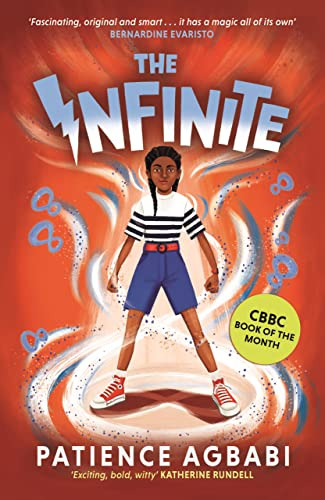
Middle School Monday: The Infinite (The Leap Cycle #1) by Patience Agbabi
Elle and her best friend Big Ben are both Leaplings with The Gift. This means that they were born on February 29th, and they have the ability to Leap through space and time.
They have to use this gift responsibly, and they’re not allowed to Leap by themselves until they’re 12 years old. But just before she turns 12, Elle Leaps by accident. She doesn’t know why it happened, but she wonders if it’s not a coincidence that she Leaped on one of the worst days of her life, when she was going through an emotional overload. It was also the same day that she received a mysterious SOS text message that was sent from the future.
This book, the first in The Leap Cycle series, combines plenty of engaging plot elements like science fiction, time travel, alternate timelines, and global warming. It’s a book that will make readers think about big issues like saving the planet and protecting our future, but it does it without being preachy. It also contains one of the most unique casts of characters I’ve met in a while, including kids and grownups from different parts of the world, and characters with different types of mental / emotional issues. We spend a lot of time inside of Elle’s head, as she deals with her autism and tries to get over or around the hurdles that her mind puts in front of her.
Give this book to older kids and younger teens who are looking for a one-of-a-kind science fiction story about smart kids who want to improve today to make a better tomorrow.
#Middle School Monday#The Infinite#The Leap Cycle#Patience Agbabi#Kid Lit#science fiction#time travel#weneeddiversebooks#STEM#STEAM#global warming#climate change#bullying#Kingsbridge Library#NYPL
0 notes
Note
hello! i love your blog and your 'for the thesis' tag is especially intriguing to me (i'm very curious about medieval literature and history); would you be willing to talk a little about what your thesis is about, if you're comfortable with it? no problem if not! have a nice day :)
[wearing my neon pink "ask me about my thesis" t-shirt] haha yeah of course
SO the short answer is that I’m tackling various adaptations of Arthurian works through an ecocritical and racial lens.
The long answer is all of that, but with more detail, lol. I have a couple through-lines in my adaptations insofar as the histories they’re building upon— I’m tackling Le Morte d’Arthur by Malory, so I’m also tackling Tennyson’s Idylls of the King and TH White’s The Once and Future King. I’m looking at Sir Gawain and the Green Knight, so I’d also like to tackle The Green Knight (2021) (I might scrap that though, sadly) and, though this doesn’t as much fit into these two camps, I think Kazuo Ishiguro’s The Buried Giant slots in quite well with the concerns of SGGK. There are other works that I’m interested in too, though I don’t know to what extent or how much time I’ll be afforded: there’s a really interesting amount of adaptations of Chaucer’s the Wife of Bath’s Tale, with all that it holds, and I’d like to see if I can include Patience Agbabi’s Telling Tales and Zadie Smith’s The Wife of Willesden, which both adapt the story into a modern context, with a stronger focus on race— which is super interesting to me on the racial lens more than the environmental!
In an overarching sense, my thoughts are centered around the construction of capital-N Nature, nation and empire (you see this very heavily in Idylls of the King, unsurprisingly) through Arthurian legend as well as how those ideas are both corrupted (see The Buried Giant, The Green Knight) and boldened by adaptations, as well as the specific connections between empire and environment and how those lay the groundwork for thoughts around race.
The theoretical texts I’m working with are primarily Jeffrey Jerome Cohen’s Stone: An Ecology of the Inhuman, Iman Jackson’s Becoming Human: Matter and Meaning in an Antiblack World, Timothy Morton’s Hyperobjects: Philosophy and Ecology After the End of the World, Rob Nixon’s Slow Violence and the Environmentalism of the Poor, and Kathryn Yusoff’s A Billion Black Anthropocenes or None. I’m delighted to talk more about how these texts fit into my critical work, but this answer is already long enough lol!!!
I’m particularly curious about how/why adaptations of Arthurian legend are so concerned with nature and the environment (see The Once and Future King), and what about Arthurian legend makes it such a heady and rich place for analysis and environmentally concerned fiction. How does the constructed and real history of the UK/Britain/England as reflected through Arthuriana reveal anxieties and insights on environmental changes of the time? Can the fall of King Arthur’s court be used today as a metaphor for species extinction? Is the Anthropocene- and all the dicey territory that comes with such a term- in Camelot? Is the Holy Grail a Hyperobject? Where do Hyperobjects appear in Arthurian adaptations? How does environmentalism interact with race in these adaptations, and in their historical situations?
My thesis tag is a little misleading insofar as there are quite a couple posts in there that don’t really have anything to do with my thesis in particular, but rather just remind me of it and the stuff I’m working on!!!
Thank you for asking and loving my blog hehe :3 I hope this answered your question and if you have any more questions or anything like that feel free to ask or also dm me if you prefer :D
(edit: OH there's also another work I'm super interested in though I need to bring this one up to my thesis advisor called King Artus: A Hebrew Arthurian Romance of 1279 which is super fascinating on both a racial and 'adaptational' (to which that can be discussed as an appropriate term) level)
#asks#[sound of inbox pinging] [sound of large door being broken down] oh no you've released the monster. the thesis rambling monster#its only an undergrad thesis so it's not exactly going to be incredible scholarly work but i think im doing interesting stuff that hasn't#been quite tackled before or at least not in the ways im interested in tackling them#so im pretty excited :)#thank you for askingggg#i do think the holy grail counts as a hyperobject. btw.
7 notes
·
View notes
Text
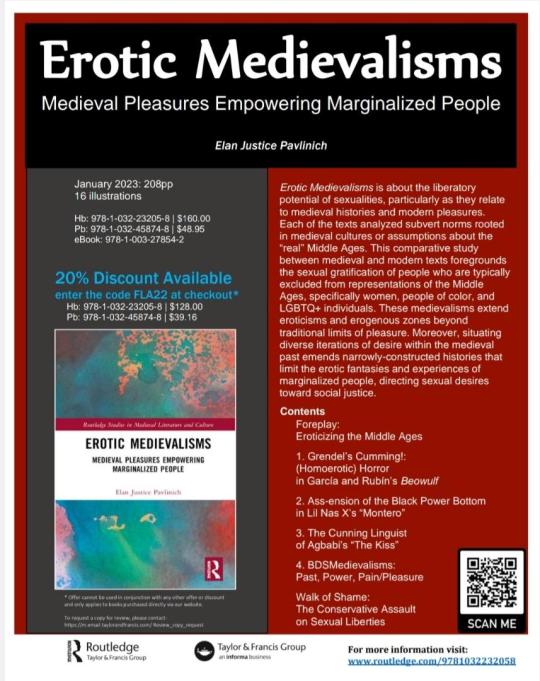
Erotic Medievalisms: Medieval Pleasures Empowering Marginalized People. By Elan Justice Pavlinich. Routledge, 2023.
Rating: 3.5/5 stars
Genre: literary criticism
Part of a Series? No
Summary: Erotic Medievalisms is about the liberatory potential of sexualities, particularly as they relate to medieval histories and modern pleasures. Each of the texts analyzed within subvert norms rooted in medieval cultures or assumptions about the "real" Middle Ages, constructing queer histories that blur the lines between fantasy and authenticity. These medievalisms extend eroticisms and erogenous zones beyond normative limits of pleasure. Moreover, situating these diverse iterations of desire within the medieval past emends narrowly-constructed histories that limit the erotic fantasies and experiences of marginalized people.
***Full review below.***
Since this book is nonfiction, my review will be organized a little differently than usual.
Full disclosure: The author is a personal friend of mine, and I provided initial feedback/comments on the introduction and conclusion of this book (though not the chapters). So my review will inherently contain some bias.
The main argument of this book is that non-normative sex acts in medieval-inspired pop culture allow for the radical inclusion of queer and BIPOC people in a cultural/historical narrative from which they are typically excluded. Pavlinich looks at four main pieces of medievalism: Santiago Garcia and David Rubin's Beowulf, Lil Nas X's "Montero (Call Me By Your Name)," Patience Agbabi's "The Kiss," and medieval-inspired aesthetics and devices in contemporary BDSM. Each chapter compares the contemporary work to a medieval counterpart and is supported by an extensive bibliography of critical theorists and literary scholarship.
Pavlinich's book is at its strongest when performing "close reading." I was extremely impressed by the insights Pavlinich offered when showing the reader little details about the text (or video or what have you) that I might have otherwise overlooked. Some of these reading are also incredibly clever; I would have never thought, for example, to make a linguistic comparison between the Old English com and the modern English cum, much less dissect how bodily fluids function the same way in the graphic novel as the dread of Grendel's arrival in the medieval poem.
That being said, I do think Pavlinich's voice gets buried under the secondary scholarship. Pavlinich cites a lot of sources, and while some of them are vital for making sure a point is convincing and well-founded, I almost get the impression that the author was counting on established scholarship to do much of the heavy lifting. At multiple points in the book, Pavlinich would make a good observation, but instead of exploring the implications further, he would back off and zoom out to show what other people have said about a similar topic. In general, I think I would have much rather liked to see Pavlinich keep the secondary sources contained and spend more time elevating his own voice. That way, the secondary sources wouldn't just be mapped onto the primary texts, but Pavlinich could show how each text "speaks back" to theory (in other words, Pavlinich's voice would be elevated by showing how his close readings may be explained by theory, but also how theory can be changed by his close readings).
I also think there are a couple areas of the book that could use more close reading to help sell a point. For example, in the chapter on "Montero," Pavlinich claims that the final act of the music video depicts Lil Nas X as a harrower of hell, a queer Black savior performing an imitatio christi. Personally, I don't think I was convinced with this argument because the chapter simply asserts it to be true and doesn't make a case using the visuals of the video. How is LNX a savior and not rejecting salvation (by becoming the king of hell himself - the archtempter), especially when salvation is predicated on whiteness and straightness (as Pavlinich establishes elsewhere in the chapter)? How do we know LNX isn't reveling in damnation? A few other spots in the book are like that, which surprised me because when Pavlinich does perform close reading, his insights are good. I just wish that strength had been deployed more often.
In short, this book is a good intro to interrogating the medievalism of pop culture artifacts that are understudied by institutional scholarship. While I do think Pavlinich can elevate his own voice further, I would love to see future work from him and see what other insights he can bring by applying queer theory to medievalism.
11 notes
·
View notes
Text
Episode 155 - Literary Fan Fiction
This episode we’re talking about Literary Fan Fiction! We discuss ancient myths, fairy tales, Sherlock Holmes, copyright, Sherlock Holmes, authorized sequels, Sherlock Holmes, and sequels vs reinterpretations! Plus: Sherlock Holmes! (Okay, he didn't get mentioned that much.)
You can download the podcast directly, find it on Libsyn, or get it through Apple Podcasts, Stitcher, Google Podcasts, or your favourite podcast delivery system.
In this episode
Anna Ferri | Meghan Whyte | Matthew Murray | Jam Edwards
Things We Read (or tried to…)
The Girl in Red by Christina Henry
The Strange Case of the Alchemist's Daughter by Theodora Goss
Rappaccini's Daughter by Nathaniel Hawthorne was reprinted in Evil Roots: Killer Tales of the Botanical Gothic
Wide Sargasso Sea by Jean Rhys
Jane Eyre by Charlotte Brontë
Lost Boi by Sassafras Lowrey
Peter Pan in Kensington Gardens by J. M. Barrie (Wikipedia)
Peter and Wendy by J. M. Barrie (Wikipedia)
Copyright status
Telling Tales by Patience Agbabi
The Canterbury Tales by Geoffrey Chaucer
Other Media We Mentioned
The House of Silk by Anthony Horowitz
And Another Thing… by Eoin Colfer
Shadow Master Series Volume 3 by Andy Helfer, Kyle Baker, and Joe Orlando
Includes the comic in which The Shadow’s head is placed on a robot body
A Night in the Lonesome October by Roger Zelazny
Jack the Ripper in fiction (Wikipedia) (Yes, there’s an entire article and it mentions at least five additional stories that feature Sherlock Holmes.)
The Ballad of Black Tom by Victor LaValle
The League of Extraordinary Gentlemen by Alan Moore and Kevin O'Neill
Fables (comics) by Bill Willingham (Wikipedia)
The Argonauts and the Quest for the Golden Fleece (Wikipedia)
Beowulf (Wikipedia)
Pride and Prejudice and Zombies by Seth Grahame-Smith and Jane Austen
Grendel by John Gardner
Fifty Shades of Grey by E. L. James
The Murder of Mr. Wickham by Claudia Gray
The Other Bennet Sister by Janice Hadlow
A Study in Emerald by Neil Gaiman (Wikipedia)
A Study in Charlotte by Brittany Cavallaro
The Great Mouse Detective (Wikipedia)
Sherlock Holmes in the 22nd Century (Wikipedia)
Elementary, Dear Data (Wikipedia) - Star Trek: The Next Generation episode
House (TV series) (Wikipedia)
Elementary (TV series) (Wikipedia)
Sherlock (TV series) (Wikipedia)
Dorian Gray (2009 film) (Wikipedia)
Victor Frankenstein (film) (Wikipedia)
The Adventures of Shirley Holmes (Wikipedia)
Enola Holmes (film) (Wikipedia)
Holmes on the Range by Steve Hockensmith (Actually just about cowboys who really like Sherlock Holmes)
Sherlock Holmes: Adventures in the American West by John S. Fitzpatrick
Links, Articles, and Things
Fan fiction (Wikipedia)
Matthew was probably combining Robert Ludlum (died in 2001 and since then thirty books have been published under the “Ludlum brand”) and Tom Clancy (died in 2013 and since then 18 books have been published under the “Clancy brand”)
Marple: Twelve New Mysteries A 2022 collection of new stories by various authors about Agatha Christie’s Miss Marple character
Cthulhu Mythos in popular culture (Wikipedia)
Robin McKinley (Wikipedia)
Frankenstein's monster (Wikipedia)
How Rocket Raccoon Rescued My Brother, Famed Marvel Writer Bill Mantlo by Mike Mantlo
Doujinshi (Wikipedia)
Doraemon Doujinshi Accused of Infringing Copyright
Hark Podcast
Sherlock Holmes (Wikipedia)
Sherlock Holmes and the Case of the Copyrightable Character by Nicholas Perrotti
Sargasso Sea (Wikipedia)
22 “Literary Fan Fiction” (retellings, adaptations, sequels, parallel novels, etc.) books by BIPOC (Black, Indigenous, and People of Colour) Authors
Every month Book Club for Masochists: A Readers’ Advisory Podcasts chooses a genre at random and we read and discuss books from that genre. We also put together book lists for each episode/genre that feature works by BIPOC (Black, Indigenous, & People of Colour) authors. All of the lists can be found here.
For this booklist, the original story being retold/referenced appears (in parentheses).
Telling Tales by Patience Agbabi (Canterbury Tales by Geoffrey Chaucer)
The Adventures of China Iron by Gabriela Cabezón Cámara (El Gaucho Martín Fierro by José Hernández)
The Family Chao by Lan Samantha Chang (The Brothers Karamazov by Fyodor Dostoevsky)
Windward Heights by Maryse Condé (Wuthering Heights by Emily Brontë)
The Meursault Investigation by Kamel Daoud (The Stranger by Albert Camus)
Unmarriageable by Soniah Kamal (Pride and Prejudice by Jane Austen)
Sex and Vanity by Kevin Kwan (A Room With a View by E.M. Forster)
The Ballad of Black Tom by Victor LaValle (The Horror of Red Hook by H.P. Lovecraft)
The Daughter of Doctor Moreau by Silvia Moreno-Garcia (The Island of Doctor Moreau by H.G. Wells)
The Holder of the World by Bharati Mukherjee (The Scarlet Letter by Nataniel Hawthorne and the Ramayana by Valmiki)
Mama Day by Gloria Naylor (The Tempest by William Shakespeare)
Even in Paradise by Elizabeth Nunez (King Lear by William Shakespeare)
The Girl Who Fell Beneath the Sea by Axie Oh (The Tale of Shim Ch'ŏng)
Kaikeyi by Vaishnavi Patel (The Ramayana by Valmiki)
The Wind Done Gone by Alice Randall (Gone With the Wind by Margaret Mitchell)
My Jim by Nancy Rawles (The Adventures of Huckleberry Finn by Mark Twain)
Son of a Trickster by Eden Robinson (Wee'git stories)
Unforgivable Love by Sophfronia Scott (Les Liaisons Dangereuses by Pierre Choderlos de Laclos)
The Chosen and the Beautiful by Nghi Vo (The Great Gatsby by F. Scott Fitzgerald)
Prince of Cats by Ron Wimberly (Romeo and Juliet by William Shakespeare)
Sansei and Sensibility by Karen Tei Yamashita (Various works by Jane Austen)
Pride by Ibi Zoboi (Pride and Prejudice by Jane Austen)
Give us feedback!
Fill out the form to ask for a recommendation or suggest a genre or title for us to read!
Check out our Tumblr, follow us on Twitter or Instagram, join our Facebook Group, or send us an email!
Join us again on Tuesday, August 16th we’ll be discussing an update on what media we’ve been enjoying outside of the podcast. (Oh no that’s next week.)
Then on Tuesday, September 6th we’ll be discussing the format of Audio Book Fiction!
5 notes
·
View notes
Text
Books geared towards preteens and teens:
Queerly Autistic by Erin Ekins
The Many Mysteries of the Finkel Family by Sarah Kapit
The Awesome Autistic Go-To Guide: A Practical Handbook for Autistic Teens and Tweens by Yenn Purkis and Tanya Masterman
The Autism-Friendly Guide to Periods by Robyn Steward
The Spectrum Girl’s Survival Guide: How to Grow Up Awesome and Autistic by Siena Castellon
Diary of a Young Naturalist by Dara McAnulty
Stanley Will Probably be Fine by Sally J. Pla
Moojag and the Auticode Secret by N.E. McMorran
A Kind of Spark by Elle McNicoll
A Boy Called Bat by Elana K. Arnold
Planet Earth is Blue by Nicole Panteleakos
Can You See Me? by Libby Scott & Rebecca Westcott
Do You Know Me? by Libby Scott & Rebecca Westcott
Notes on my Family by Emily Critchley
Get a Grip, Vicky Cohen! by Sarah Kapit
Trouble with a Tiny T by Merriam Saunders
The Someday Birds by Sally J. Pla
The Boy Who Steals Houses by C. G. Drews
On the Edge of Gone by Corinne Duyvis
State of Grace by Rachael Lucas
Even If We Break by Marieke Nijkamp
At the End of Everything by Marieke Nijkamp
Too Close to Home by Aoife Walsh
Queens of Geek by Jen Wilde
Forever Neverland by Susan Adrian
The Infinite series by Patience Agbabi
Frankie's World by Aoife Dooley
A Kind of Spark by Elle McNicoll
Show Us Who You Are by Elle McNicoll
And like a charm by Elle McNicoll
To Night Owl From Dog Fish by Holly Goldberg Sloan and Meg Wollitzer
The Oracle Code by Marieke Nijkamp
The Secret Detectives by Ella Risbridger
Can You See Me series by Libby Scott & Rebecca Westcott
M is for Autism and M in the Middle by the Limpsfield Grange Students
Fall down Seven Times Get Up Eight by Naoki Higashida
The Reason I Jump by Naomi Hashida
#autism acceptence month#autism#autism acceptance#asd#actually audhd#actually autistic#autistic adult#autistic pride#autistic#audhd
1 note
·
View note
Photo
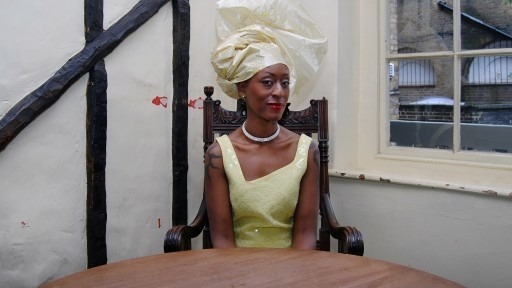
Patience Agbabi
Gender: Female
Sexuality: Bisexual
DOB: Born 1965
Ethnicity: Nigerian
Nationality: British
Occupation: Poet, writer, academic
#Patience Agbabi#qpoc#qwoc#lgbtq#bisexuality#female#bisexual#1965#nigerian#black#african#poc#poet#writer#acadmic
104 notes
·
View notes
Text
When my April showers me with kisses
I could make her my missus or my mistress
but I'm happily hitched - sorry home girls -
said my vows to the sound of the Bow Bells
(...)
I'm the Host for tonight, Harry Bailey,
if I'm tongue-tied, April will bail me,
I'm MC but the M is for mistress
when my April shows me what a kiss is ...
- Patience Agbabi, Telling Tales
5 notes
·
View notes
Text
WALES BOOK OF THE YEAR 2021: The Winners
WALES BOOK OF THE YEAR 2021: The Winners
Novelist Catrin Kean is the Winner
Literature Wales has declared Catrin Kean the overall winner of the 2021 Wales Book of the Year Award with her debut novel, Salt. It also won the Wales Arts Review People’s Choice Award.
Set in a grey, grimy and overcrowded Cardiff in the late 1800s, Kean’s tale is based on the very real love story of her great-grandparents, who married in 1878. Ellen, a…
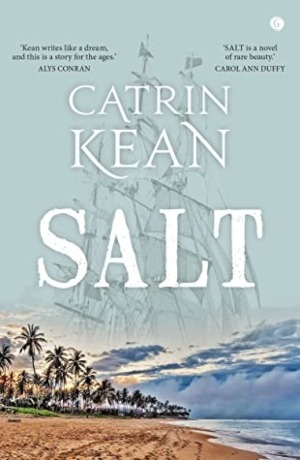
View On WordPress
#Catrin Kean#Fiona Sampson#Golwg360 Barn y Bobl Award#Hazel Walford Davies#Megan Angharad Hunter#Patience Agbabi#Victoria Owens#Wales Arts Review People’s Choice Award#Wales Book of the Year Awards 2021#Welsh Novels
2 notes
·
View notes
Text
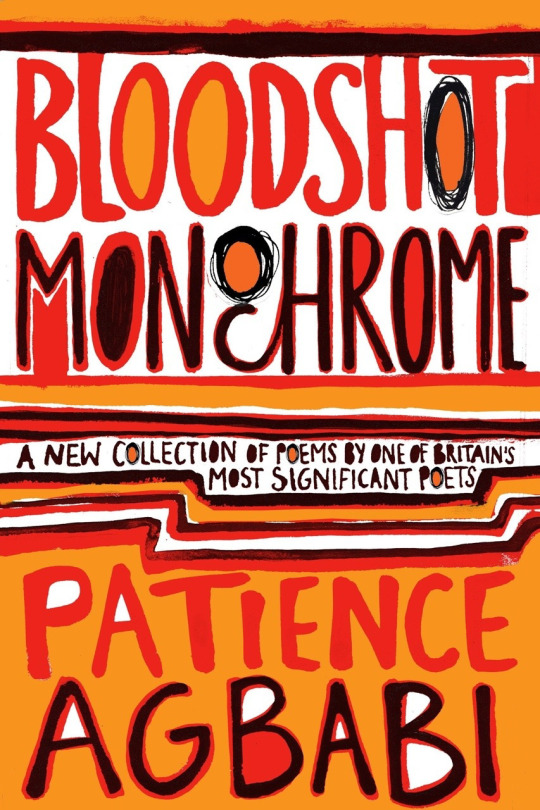


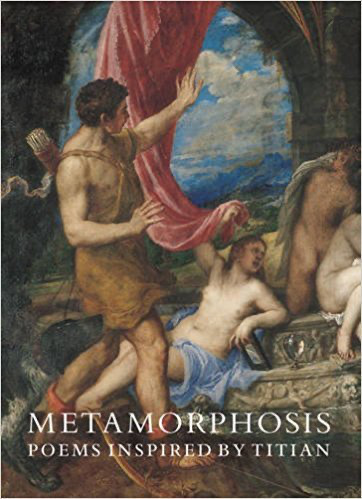


Patience Agbabi and writing
12 notes
·
View notes
Text
0 notes
Text
Patience Agbabi on Arthur C. Clarke Award 2021 shortlist.
Patience Agbabi on Arthur C. Clarke Award 2021 shortlist.
Patience Agbabi’s novel The Infinite is on the shortlist for the Arthur C. Clarke Award 2021 announced on June 30, 2021.
The annual Arthur C. Clarke Award, given for the best science fiction novel first published in the UK during the previous year, was founded in 1987. Some previous winners of the award, established with a generous grant given by Sir Arthur C. Clarke, have been Lauren Beukes,…
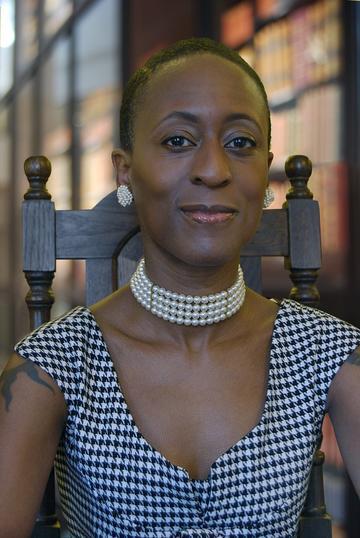
View On WordPress
0 notes
Text
Actaeon, you’ll pay the price for looking
like a god; athletic, proud, immortal.
Diana, goddess of the hunt, will hound you.
She is too harsh; you should have looked at me.
I am her shadow, black yet fairer than
the mistress, clad in cloth finer than cirrus.
I want you, Actaeon. I wish I were
shroud white; O that you’d notice me and mouth
each monumental curve. Her handsome face
off-guard, you brushed aside the drape to see
how cool she bathed; with the pool’s spray, she cursed you
for looking. In this pine-sweet grove, you turned
from man to horned and dappled stag: sentenced.
Look how your fate reflects itself in water.
Look! How your fate reflects itself in water
from man to horned and dappled stag, sentenced
for looking. In this pine-sweet grove, you turned.
How cool she bathed! With the pool’s spray she cursed you.
Off-guard, you brushed aside the drape to see
each monumental curve, her handsome face
shroud white. O that you’d notice me and mouth
I want you. Actaeon, I wish I were
the mistress clad in cloth finer than cirrus.
I am her shadow, black yet fairer than
she is. Too harsh! You should have looked at me.
Diana, goddess of the hunt, will hound you
like a god, athletic, proud, immortal.
Actaeon, you’ll pay the price for looking.
About Face (after Titian) by Patience Agbabi
8 notes
·
View notes